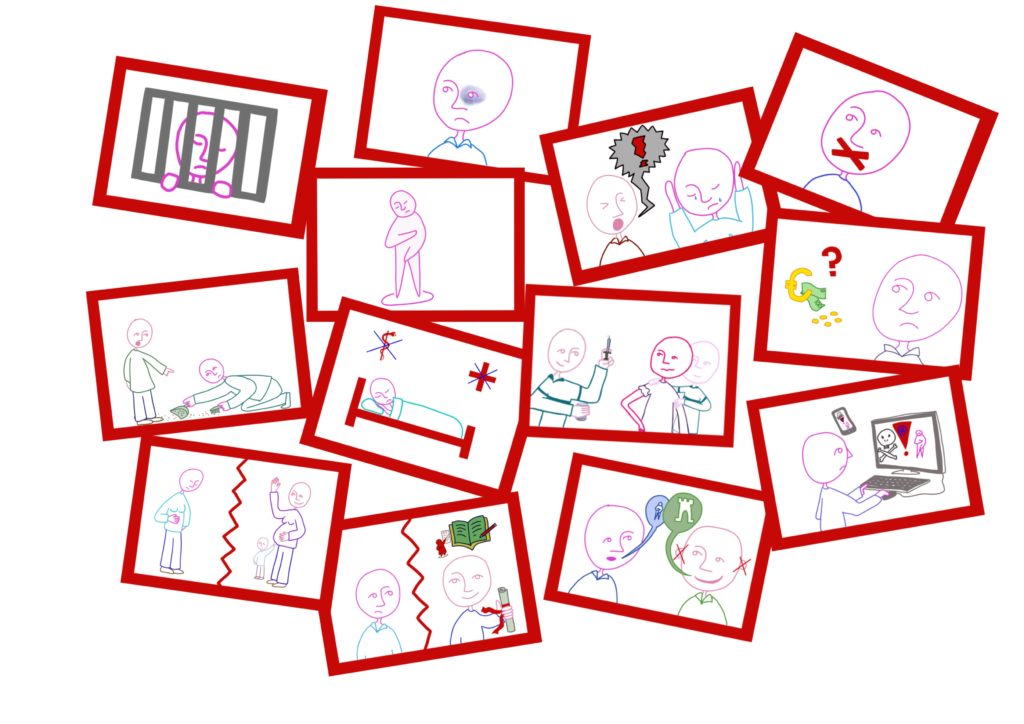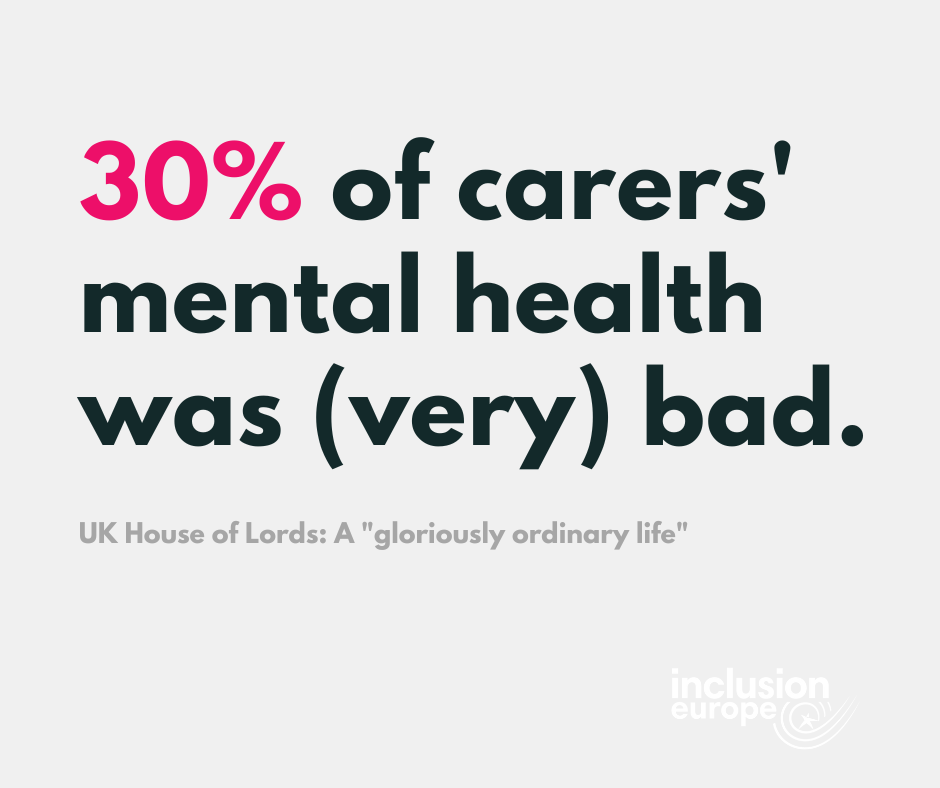The European Commission is working on a Mental Health Initiative. These are some topics we think the initiative should consider and address:
For people with intellectual disabilities, mental health is typically both neglected, and misused for their segregation.
For family members, there are heavy mental health consequences of inadequate support for their family members with disabilities.
Mental health of people with intellectual disabilities
“Total prevalence of mental health problems in adults with learning disability:
- The rate is considerably higher than that found in the general population.
- It is probably between 30 and 50%.”
“Approximately 40% of children with intellectual disability present with a diagnosable mental disorder, a rate that is at least double that in children without intellectual disability.”

Psychological abuse. Person screaming at another person. Drawing by Juultje Holla for Inclusion Europe.
Intellectual disability and mental illness are often confused.
One consequence is the misconception is that mental health of people with intellectual disabilities is often ignored, disregarded.
Systematic segregation and discrimination of people with intellectual disabilities prevents detection, screening, and care of mental health problems.
Psychiatric hospitals are being used to institutionalise people with intellectual disabilities.
In many countries, persons with intellectual disabilities and people with complex support needs are most likely to still live in institutional settings. The situation of people with disabilities more generally has improved over time.
- However, this is not true for all people and more limited for people with intellectual and developmental disabilities, who are more likely to be living in segregated or congregated settings and less likely to be experiencing real inclusion.
When leaving institutions, people with intellectual disabilities might be provided with tangible and material aspects of the transition, but there is a lack of recognition of and support to deal with the trauma of institutionalisation (.pdf).

Multiple kinds of violence people experience in institutions. Drawing by Juultje Holla for Inclusion Europe.
Mental health and intellectual disabilities diagnoses are being used to deprive people of their right to decide about their lives.
The deprivation of legal capacity, and substitute decision-making remain an common issue in many EU countries.
- This impacts people’s ability to make every-day decisions and lead independent lives.
- It impacts their capacity to decide about health care and mental health-related interventions.
Family carers and mental health
“It is estimated that 12-18% of the EU population aged 18-75 provide informal long-term care at least once per week.”
- “Informal care often comes with significant costs for the carers, in both the short and long term.
- “Even when it is a personal choice, providing care can negatively affect carers’ physical and mental health and well-being.”
“30% of carers said their mental health was bad or very bad; and 29% said they felt lonely often or always.”
- There are risks of increased loneliness, isolation, anxiety and depression.
- “Most of us are desperate. Most of us are drained. Most of us are in a state of grief. We need support, we need recognition.”
Lack of support for both people with disabilities and their families providing care can lead to drastic consequences.
- Between 2015 and 2021, the Ghent Centre for the End of Life Vonkel counted no less than 800 euthanasia requests. Nearly 45 percent of them had been diagnosed with autism. 129 requests led to a performance of euthanasia.
- There are multiple cases of family carers killing their relative with disabilities and themselves.
“Families had been taken for granted by States to make up for gaps in services.”
- “For some persons with disabilities, family could be a source of conflict, trauma and loss of agency. Overreliance on families may therefore hamper recovery, and a delicate balance is required.
- Simply relying on families to absorb all and every support need is not adequate for the future.
- Family support must be based on the active consent of the service user.”

30% of carers’ mental health was (very) bad. Source: UK House of Lords: A “gloriously ordinary life”
Recommendations
Mental health initiatives should address the issues faced by people with intellectual disabilities and their families.
- Mental health campaigns, prevention should target them specifically, including by providing accessible and easy-to-read information about mental health and available support.
- Mental health care professionals should be trained in how to provide care to people with intellectual disabilities.
- Support (including with “time off care”) should be provided so that family members can attend to their mental health.
- EU funding should prioritise actions in support of:
- Deinstitutionalisation, Including mental health support to people leaving institutions;
- Implementation of supported decision-making;
- Restoration of legal capacity.





